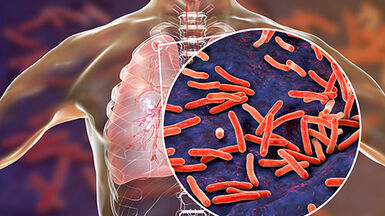Country support in diseases related to the Sustainable Development Goals

Sustainable Development Goal (SDG) 3.3(link is external) is to ‘end the epidemics of AIDS, tuberculosis, malaria and neglected tropical diseases and combat hepatitis, water-borne diseases, and other communicable diseases’ by 2030.
Towards this end, the World Health Organization (WHO) has published Global health sector strategies(link is external) that aim to end AIDS and the epidemics of viral hepatitis and sexually transmitted infections (STIs) by 2030 through joint action in areas of convergence while maintaining disease specificities. The WHO Regional Office for Europe has also developed regional action plans for HIV, viral hepatitis and STIs(link is external) as well as tuberculosis(link is external).
Common to all these diseases is the need to deliver effective interventions, including prevention, testing and treatment, aimed at the correct individuals, at scale and in time to make a difference. Furthermore, many of the diseases are associated with stigma and groups that experience social marginalisation, which presents a unique set of challenges. Given the progress thus far and the challenges faced, increased collaboration and efforts are needed to achieve SDG 3.3.
Activities
To help EU/EEA countries progress towards achieving the SDGs and other global goals, ECDC supports the countries through:
- assessment of EU-level and country epidemiological trends and progress towards the SDGs, providing countries with an opportunity to benchmark their progress over time and against their neighbours in the region.
- setting of standards (i.e., case definitions, data quality assessments) and supporting harmonised, high-quality surveillance and monitoring activities.
- development and publication of scientific guidance, risk assessments, surveillance and monitoring reports related to viral hepatitis, HIV/AIDS, STIs and tuberculosis.
- provision of capacity-building activities(link is external) such as trainings, workshops, country-to-country exchanges and webinars aimed at exchanging practices and strengthening EU/EEA countries’ technical and scientific capacities to prevent and control these diseases.
- provision of consultancies aimed at strengthening EU/EEA countries’ technical and scientific capacities to prevent and control these diseases.
- identification of funding opportunities such as those provided via the European Commission’s EU4Health programme(link is external).
Contact SBT@ecdc.europa.eu for:
- regular SDG-related country support updates via subscription to the SBT disease programme newsletter
- general questions.




